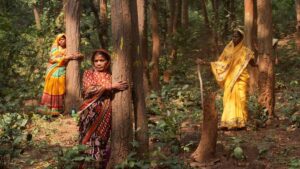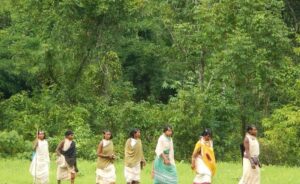Ancient Practices for Modern Conservation

– Shivaan Darda

Have you ever wondered why sometimes the desi tips work far better than any technology? That is because it has been tried and tested over generations! Similarly, when it comes to our Earth, there are traditional ways to deter its damage – using indigenous knowledge! Passed down through generations and deeply rooted in traditions, this wisdom offers invaluable insights into sustainable coexistence with nature. Let’s delve into the pivotal role of this unique practice.
Understanding Indigenous Knowledge
Indigenous people are the original inhabitants of a region, distinct from the dominant societies that have taken control over time. With their deep connection to the land, they have developed a detailed understanding of local ecosystems over thousands of years. Their wealth of knowledge is comprehensive, covering the biological aspects as well as the cultural, spiritual, and social dimensions of human-nature interactions.
The Roles It Plays
Studies show that indigenous-managed lands have 80% of the world’s biodiversity. This knowledge forms the basis of various sustainable practices, from traditional land management techniques to the conservation of local culture.

- Holistic Land Management: Local communities often view land, water, plants, and animals as interconnected. Adopting a holistic approach to land management, where all elements of the ecosystem are considered together, can lead to more sustainable conservation practices. For instance, indigenous territories in the Amazon have up to 33% lower deforestation rates than other areas.
- Tradition Reimagined: Classic ecological relationships developed over centuries, integrating with modern science can prove to be a boon.
- Respect for Sacred Sites: Many local cultures have sacred sites that are protected due to their cultural and spiritual significance. Respecting and preserving these areas can also safeguard biodiversity hotspots.
These are just a few instances of how indigenous conservation efforts can create more effective and sustainable solutions for preserving our natural world. By honouring and integrating these perspectives we can forge more holistic, equitable, and effective strategies for safeguarding the natural world.